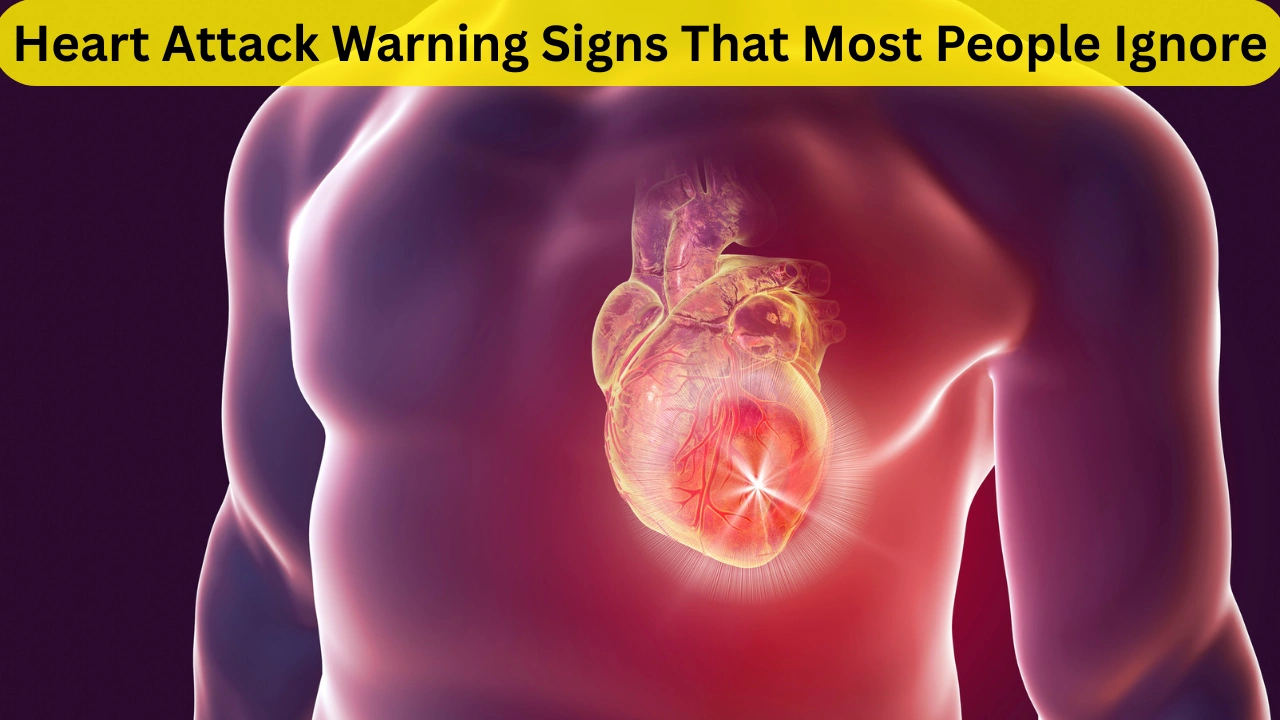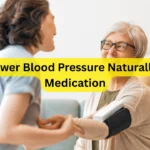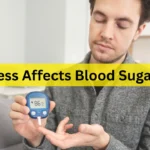Heart attacks are a leading cause of death worldwide, but the majority of heart attacks can be prevented or mitigated with early recognition of symptoms. Unfortunately, many people ignore the warning signs until it’s too late. Recognizing the warning signs of a heart attack early can save lives and minimize the damage to the heart.
In this article, we’ll explore the warning signs of a heart attack that most people overlook. By understanding these symptoms, you can act quickly and seek medical help, potentially saving your life. We’ll also discuss why these warning signs are often ignored, the impact of delayed response, and the importance of prompt medical attention.
Common Heart Attack Symptoms
Chest Discomfort
The most common symptom of a heart attack is chest discomfort, often described as pressure, tightness, squeezing, or a feeling of fullness in the chest. This discomfort can last for several minutes or come and go. While some people experience sharp chest pain, others may feel a more vague discomfort.
- Important Note: Chest discomfort does not always appear as intense pain. It can feel like mild pressure, making it easy to ignore, especially if the person doesn’t recognize it as a heart attack symptom.
Pain Radiating to Other Areas
Heart attack pain is not always confined to the chest. It can radiate to other areas of the body, including the arms, neck, jaw, stomach, and back. For many, the discomfort may be mistaken for indigestion or muscle pain.
- What to Watch For: Pay attention to any discomfort or pain that spreads from your chest to other parts of your body, especially if it’s combined with other symptoms such as shortness of breath.
Shortness of Breath
Another classic symptom of a heart attack is shortness of breath, which often occurs in tandem with chest pain. However, some individuals may experience shortness of breath without chest pain, particularly women.
- Warning: If you suddenly feel short of breath, particularly when at rest, seek medical attention immediately. It could be a sign of a heart attack.
Nausea, Dizziness, and Sweating
Other less obvious symptoms of a heart attack can include nausea, dizziness, and excessive sweating. Many people dismiss these symptoms, attributing them to something less serious like anxiety, stress, or flu-like symptoms.

- Important Note: If these symptoms occur suddenly and are accompanied by any of the other heart attack signs, it’s crucial to call for medical help.
Silent Heart Attacks – The Symptoms You Might Miss
What is a Silent Heart Attack?
A silent heart attack refers to a heart attack that occurs without the typical chest pain or discomfort. People who experience silent heart attacks may not recognize the symptoms, and the condition can go undiagnosed for years. This type of heart attack is often discovered later when tests show signs of heart damage.
Symptoms of Silent Heart Attacks
Common signs of a silent heart attack include:
- Fatigue
- Indigestion or discomfort in the upper stomach area
- Mild chest pain or tightness that is easily ignored
- Shortness of breath or a feeling of being winded
Silent heart attacks are often missed, and many people do not realize they’ve had one until a doctor identifies the damage.
How Heart Attack Symptoms Differ Between Men and Women
Symptoms Common in Women
Women may experience heart attack symptoms that are different from those in men. Some symptoms are more subtle and can be mistaken for other conditions like anxiety or stress:
- Pain in the back or shoulders
- Unusual fatigue
- Nausea and dizziness
- Indigestion
Symptoms Common in Men
Men tend to experience more intense chest pain or tightness, often accompanied by shortness of breath, lightheadedness, and sweating.
- What to Watch For: While men often experience chest pain, they should also be aware of symptoms like nausea or unexplained dizziness that might not seem directly related to heart issues.
Why You Shouldn’t Ignore These Warning Signs
The Risk of Delayed Treatment
Ignoring the warning signs of a heart attack can have serious consequences. The longer you wait to get medical treatment, the greater the chance of heart damage or complications. The quicker you act, the better your chances of survival and reducing heart damage.
- Critical Point: If you experience any symptoms of a heart attack, do not hesitate to seek medical help. Delaying treatment can increase the damage to the heart and even lead to death.
The Importance of Immediate Action
It is crucial to call 911 immediately if you suspect you or someone else is having a heart attack. Timely medical intervention can save lives and prevent long-term heart damage.
- What You Can Do: Stay calm and chew an aspirin (if recommended by your doctor) while waiting for emergency help.
Other Heart Symptoms You Shouldn’t Ignore
Exhaustion and Weakness
Unusual tiredness or weakness, especially if it occurs suddenly, can indicate a heart attack, especially in women. This feeling of exhaustion may happen days or weeks before the actual heart attack occurs.
Irregular Heartbeat or Palpitations
An irregular heartbeat or sudden palpitations, often accompanied by dizziness or shortness of breath, can be a sign of an impending heart attack or other serious cardiovascular issues.
Prevention and Risk Reduction for Heart Attacks
Healthy Lifestyle Choices
- Diet: Follow a heart-healthy diet, such as the DASH diet, to reduce cholesterol and blood pressure.
- Exercise: Regular physical activity can lower the risk of heart attack by improving circulation and reducing stress.
- Quit Smoking: Smoking is a major risk factor for heart disease and increases the likelihood of heart attacks.
Managing Stress and Blood Pressure
- Stress Management: Practice relaxation techniques like meditation and yoga to reduce stress, which can contribute to high blood pressure and heart problems.
- Regular Check-ups: Monitor your blood pressure regularly and take steps to keep it within a healthy range.
| Homepage | uhmychart.org |
Conclusion
Recognizing the warning signs of a heart attack is critical to preventing serious heart damage and improving survival rates. Don’t ignore symptoms such as chest discomfort, shortness of breath, or unusual fatigue. The sooner you seek medical help, the better your chances for a full recovery.
Frequently Asked Questions (FAQs)
Can heart attack symptoms be mild?
Yes, symptoms can range from mild discomfort to severe pain. It’s important to listen to your body and seek help if something feels unusual.
How quickly should I seek help if I think I’m having a heart attack?
Seek medical help immediately if you suspect a heart attack. Timely intervention is crucial to minimize heart damage.
Are there any warning signs specific to women?
Yes, women often experience more subtle symptoms like fatigue, nausea, and back pain. These signs should not be ignored.






